Rachel S. Cordasco's Blog, page 9
November 10, 2023
Review: Launch Something! by Bae Myung-Hoon
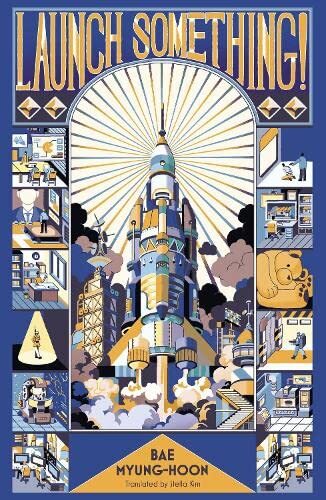
translated by Stella Kim
original publication (in Korean): 2020
first English edition: 2022, Honford Star
grab a copy here or through your local independent bookstore or library
When I was writing about Korean SFT in Out of This World (2020), only two works of long-form Korean science fiction* were available in English: a work of surrealist social protest called The Dwarf (by Cho Se-Hui, 1978; tr by Bruce and Ju-Chan Fulton, 2006) and a collection of far-future aphorisms and observations by Ganymedean settlers called The Jovian Sayings (by Bok Geo-il, 2002; tr. by the author, 2014). Since, then, thanks to publishers Kaya Press and Honford Star, Anglophone readers have been able to enjoy Readymade Bodhisattva: The Kaya Anthology of South Korean Science Fiction (2019), To the Warm Horizon (2021), Counterweight (2023), and Tower (2021) by the same author of the current novel under review. Now we have Bae Myung-Hoon’s Launch Something!, a work that blends science fiction and political satire to produce a unique novel about how people behave under extreme circumstances.
Boredom can be considered “extreme” when it’s felt by those who desperately want to make a difference in the world (or in space, or on Mars). The main characters, including remote-pilot Han Summin, Space Force leader Gu Yemin, Inspector General Park Soojin, and several others, find themselves without much to do, given that the ROK Space Force is an affiliate of the Allied Space Forces (ASF) and thus can only act in concert with that group. Without a space program like that of the US, Russia, or China, Korea doesn’t have the resources or power to do more than launch satellites or help maintain its small colony on Mars.
That colony, though. Given that life on Mars is so different from that on Earth, the colonists started feeling like the mother planet wasn’t interested in their well-being. A rebellion ensued during the time when Mars and Earth were furthest apart, which meant that Earth couldn’t respond quickly to diffuse the situation. When Earth did get its people to put down the rebellion, the violence that occurred surprised no one. This Martian rebellion, though a major plot point, is only discussed as a past incident, and at first doesn’t seem relevant to the first, and very strange, event in the novel–the appearance of Pac-Man over the Earth.
As the Space Force figures out, Pac-Man was a satellite folded like origami and then unfurled, but with one section malfunctioning (thus making it look like Pac-Man). Reflecting the sun’s rays back at the Earth, the satellite at first is believed to be causing the massive heat wave affecting all of Korea. Soon enough, after the satellite is destroyed by the ASF (with help from the ROK Space Force), people realize that Pac-Man wasn’t really affecting the temperature that much. The strange feeling resulting from seeing a second sun in the sky for several months did wear on people, though.
The ROK launch was odd in that it didn’t seem necessary and Gu Yemin was refusing to say exactly what the payload was. It turns out that that payload would be the only thing standing between Earth and a revenge plot by a disgruntled Korean-Martian colonist involving an asteroid in Earth orbit.
Launch Something! develops very slowly and somewhat unevenly–indeed, it’s more like a series of linked stories. As Bae himself notes in the “Author’s Note,” part of the novel comes from his novella “Conjunction Holidays,” which was published in the Korean sci-fi anthology Because We Still Have Time (2017). The feeling of a slow unfurling comes mostly from the long, detailed conversations between the main characters as they sit around and wait for orders or for the authority to give orders. The second half, though, brings many of the main points together in a tense final scene that makes the reading very worthwhile. I’m very much looking forward to reading Bae’s Tower after this.
*I’m specifically talking in this review about science fiction specifically, not speculative fiction, generally.
October 22, 2023
SFT from the Short Story Project

One can find a wealth of SFT on the Short Story Project site – check it out and enjoy!
“A Dwarf’s Tale” by Georg Klein, translated from the German by Imogen Taylor
“The Cold” by Ryūnosuke Akutagawa, translated from the Japanese by Asa Yoneda
“The Story of a Sock” by Muhammad al-Asfar, translated from the Arabic (Libya) by Peter Clark
“One of Them” by Aziz Jamal Yahyawi, translated from the Arabic (Tunisia) by Suleiman Zougari
“The Seventh Floor” by Mohammed Salah Rajeh, translated from the Arabic (Egypt) by Raphael Cohen
“The Opportunity” by Iftach Alony, translated from the Hebrew by Geremy Forman
“Getting Ahead” by Jonas Karlsson, translated from the Swedish by Fiona Graham
“Inside Outdoors” by Martín Felipe Castagnet, translated from the Spanish (Argentina) by Frances Riddle
“Jabir Sabeel” by Mansour Mohammad El Souwaim, translated from the Arabic (Sudan) by Raphael Cohen
… and much more here!
October 21, 2023
BulgaCon
BulgaCon, an annual gathering of speculative fiction fans in Bulgaria, took place this year on September 22 – 24. I am pleased to provide here an excerpt from Valentin Ivanov, professional astronomer and Bulgarian SF promoter, about the speakers and panels that made this BulgaCon so successful. Enjoy!
“Postscript of a Wonderful Bulgacon“
by Valentin D. Ivanov
Bulgacon 2023, which took place in Plovdiv between September 22 and 24, ended about a week ago. About 150 people were registered, but not everyone was around all the time, and several parallel streams of events further created the impression of low attendance. In comparison, a year ago in Kardzhali there was only one stream of events. The effort invested in the preparation of the two conventions was comparable, but Plovdiv offered the advantage of being a larger and more centrally located city.
The program of Bulgacon 2023 was very diverse, but concentrated around two thematic centers. One was exotic SFF – from the point of view of the average Bulgarian reader, not overly spoiled by publishers. A particularly interesting, understandable and well-structured report was given by Wole Talabi, a Nigerian speculative fiction writer who is an engineer by profession and didn’t shy away from including graphs and histograms in his presentation. Sumeira Buran, Emad Aisha, Agnieshka Halas and Aleksandar Žiljak revealed surprising secrets about the speculative fiction in Türkiye, Egypt, Poland and Croatia. Somewhat exotic for us is the unknown, but important work of Andreas Eschbach (Germany) – because it is dedicated to the all-important topic of freedom.
Separately and specifically I should mention the good friends of Bulgaria, Nina Horvath (Austria) and Eric Simon (Germany), who have visited our country numerous times, and Eric, with his many translations and editorial work, is a true progressor and promoter, spreading Bulgarian SFF in his country. I mustn’t leave out the panel in which speculative fiction writers from five European countries came to the conclusion that the more a country feels threatened – whether politically or economically – the more national specificity dominates over global ideas in its speculative genre.
The second center – I dare say it dominated in terms of variety of topics and number of events – was publishing. There was a series of presentations of new books with readings, the new issue of Terra Fantastica magazine and a new book from the series of the same name were released. Francesco Verso shared his experience in publishing European fiction, and Alex Shvartsman gave a “course” in English language publishing. Hristo Kotsev from Artline Studios presented the point of view of Bulgarian publishers.
. . .
A clear success of Bulgacon 2023 was the short story competition. This is something I wanted to organize last year, but the infamous human factor got in the way. My initial impressions were very disappointing, but the more I kept reading through the submitted stories, the more beautiful works I came across, and by the end there were about a dozen stories, any of which could have been the winner. I think in the end the awards went to these – all three names are well known to me, and I warmly congratulate them! – who held their texts to higher professional standards and worked harder on them. I am glad that the Bulgarian SFF community has a vast creative potential and I am sure that in the future, we will also enjoy great Bulgarian speculative fiction from the writers who did not receive awards this time around.
This year we drew on the rich speculative history of Plovdiv, which to a large extent oriented the festival and the fanzine towards the past. Next year – if I still have something to do with the organization of the event – I will try to direct it more towards the Future (yes, with a capital letter). One idea is to theme the next convention “Dreamers”, in all possible interpretations of this word. And there may be other surprises…
Bulgacon 2023 is over, now we have to get some sleep, let the cuts and bruises heal, dust ourselves off and think about Bulgacon 2024!
October 16, 2023
Italian SF to be Translated
* derived from Francesco Verso’s intro to Freetaly: Italian Science Fiction

Lungo i vicoli del tempo (2002 ) by Lanfranco Fabriani
Features the UCCI agency, an Italian version of the Government Time Bureau in charge of monitoring the correct flow of history and protecting Italy’s past from attacks by hostile foreign powers, already common in works by Poul Anderson and Robert Heinlein, but here adapted to the Italian cultural context.
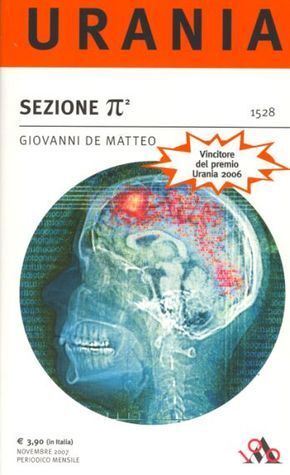
Sezione π2 (2007) by Giovanni De Matteo
Techno-thriller set in a futuristic Naples and featuring special police officers known as “necromancers,” due to the cyber-implant they are equipped with that allows them to conduct investigations starting from the victims’ memories. The novel takes place after the eruption of Vesuvius and the catastrophic consequences of a Third World War, where Naples is flooded by refugees, has reached six million inhabitants, and is besieged by an ecological threat of uncertain origins–an entropic mass able to regenerate itself by assimilating waste and invading areas abandoned by human activity.
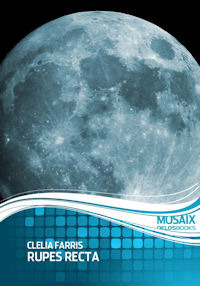
Rupes Recta (2010) by Clelia Farris
An investigation into a lunar colony in which rationality has given way to superstition.

Nessun uomo è mio fratello (2009) by Clelia Farris
A soft dystopia that anticipates many current issues such as body control and gender-based violence.
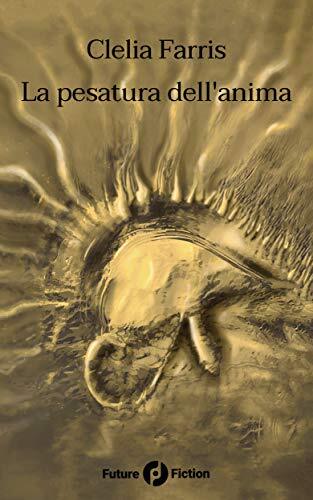
La pesatura dell’anima [The Weight of the Soul] (2010) by Clelia Farris
Set in an alternative Egypt, where the use of metals is prohibited, houses and furniture are biotech modified trees, and modified animals serve as a means of transport and communication.
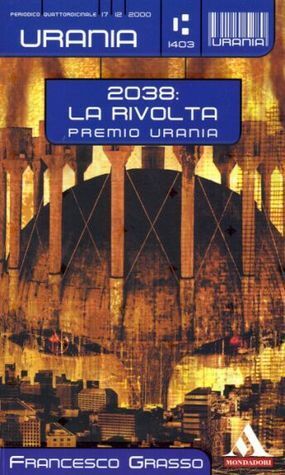
2038: la rivolta (2000) by Francesco Grasso
A story about the decline of society, the manipulation of information, and the power of banks.
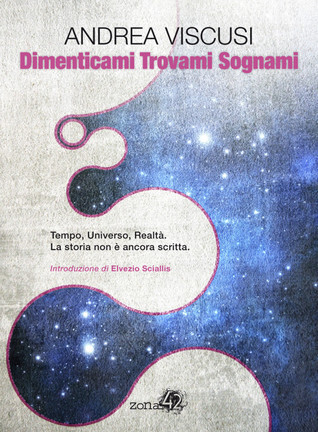
Dimenticami, Trovami, Sognami [Forget Me, Find Me, Dream of Me] (2015) by Andrea Viscusi
A love story set on different narrative levels–a sort of Eternal Sunshine of the Spotless Mind–where three protagonists must face a mystery that threatens to overwhelm their own existence: Dorian must confront forces greater than himself, Dr. Novembre is tormented by incomprehensible visions, and Simona, who waited for Dorian for twelve years, will have to put together the pieces of a story that perhaps never happened in this Universe.

Real Mars (2016) by Alessandro Vietti
An ironic story that, with a skillful metanarrative game, transforms a space reality show from science fiction into social satire, making the reader the real protagonist. Four astronauts are traveling into space while billions of people are watching and commenting on them, marveling and despising, and modifying their schedules in accordance with the tv program.

Avrai i miei occhi [You’ll Have My Eyes] (2020) by Nicoletta Vallorani
About the violence perpetrated against women’s bodies, be they human, guinea pig, clone, replicant, or cyborg.
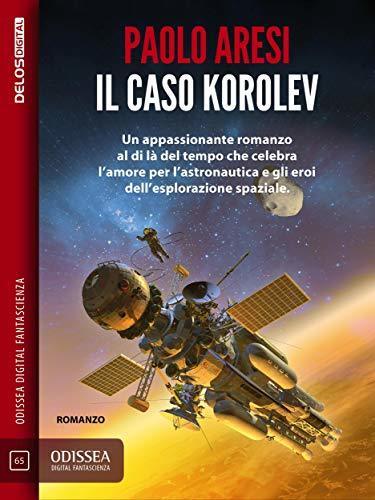
Il caso Korolev [The Korolev Case] (2011) by Paolo Aresi
An interstellar journey with a cosmic mystery to be solved, the presence of a mineral with a particular property, and an encounter with an alien civilization. Above all, the story is a tribute to the figure of the father of Russian cosmonautics, Sergej Pavlovic Korolev; the second part of the book is a historical novel centered on Korolev.
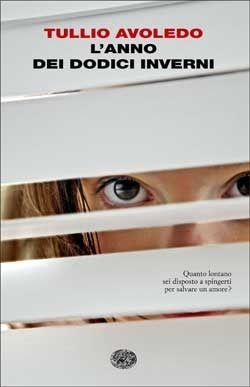
L’anno dei dodici inverni [The Twelve-Year Winter] (2009) by Tullio Avoledo
Deals with time travel, love, and redemption, in a mix of SF and realism.
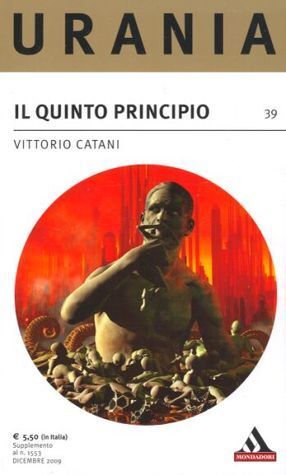
Il quinto principio [The Fifth Principle] (2015) by Vittorio Catani
In the year 2043, the Earth is devastated by so-called Exceptional Events- catastrophes that violate the laws of physics but seem to agree with a hypothesized Fifth Principle of Thermodynamics: the sinking of vast areas, the sudden decrease or absence of gravity in certain territories, the appearance of objects that create an absolute void, and more.
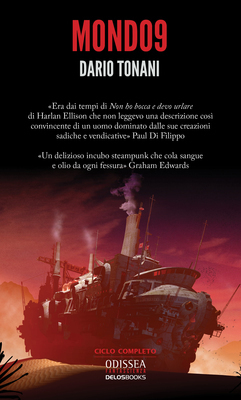
Mondo9 (2012) by Dario Tonani
A dieselpunk saga born from a series of short stories, set on a desert planet crossed by enormous semi-sentient ships.
October 1, 2023
Out This Month: October

Godzilla and Godzilla Raids Again by Shigeru Kayama, translated from the Japanese by Jeffrey Angles (University of Minnesota Press, October 3).
The first English translations of the original novellas about the iconic kaijū Godzilla.

On the Isle of Antioch by Amin Maalouf, translated from the French by Natasha Lehrer (World Editions, October 3).
Alec, a press artist with an impressive track record, settles on a remote island in the Atlantic Ocean. He has little contact with his neighbor, a solitary woman who wrote a cult book years ago, before withdrawing from public life. That is, until a gigantic power failure cuts them off from the rest of the world, and all of a sudden they find themselves dependent on each other. The world appears to be on the brink of nuclear war and the collapse of civilization seems imminent. Just who are the mysterious friends of Empedocles, the gang of otherworldly protectors who came swooping in to interfere with the US presidency and cure all illness? Should we trust them? On the Isle of Antioch is a suspenseful novel with mythological roots, written in the dreamy language of the classics, by internationally renowned scholar Amin Maalouf.
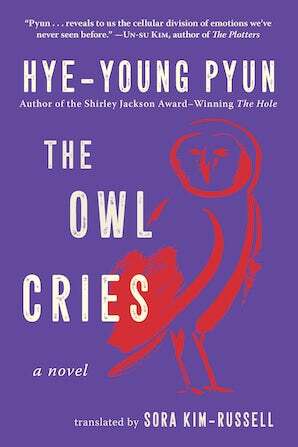
The Owl Cries by Hye-young Pyun, translated from the Korean by Sora Kim-Russell (Skyhorse Publishing, October 3).
A disappearance. A missing brother. A lawyer asking questions. And a vast forest in the mountains—the western woods—where the trees huddle close together emanating a crushing darkness and a chill dampness fills the air. The ranger, In-su Park, who lives nearby with his family, is a recovering alcoholic. He claims no knowledge of the man who disappeared, even though the missing man had worked as the ranger just before him. In the little village down the mountain, the shopkeepers will do the same and deny they ever saw or knew the man, though they’re less convincing; and his former supervisor at the Forestry Research Center, Professor Jin, dismisses his importance. But when an accident and a death derail the investigation and someone attempts to break into his office, In-su Park finds himself conducting his own inquiry into the goings-on deep in the heart of the western woods—spurred by the mysterious words he discovers on a piece of paper beneath his desk: “In the forest the owl cries.”
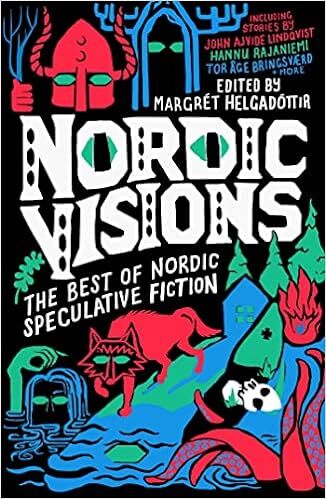
Nordic Visions, ed. Margrét Helgadóttir, various translators (Rebellion Publishing, October 10).
Storytelling has been a major force in the Nordic countries for thousands of years, renowned for its particular sense of dark humour, featuring pacts with nature and a view of the worlds you seldom find in other places. Featuring 16 stories across fantasy, science fiction and horror from the best contemporary speculative authors from Finland, Sweden, Denmark, Norway, Iceland, and The Faroe Islands, many in English for the very first time, Nordic Visions edited by Margrét Helgadóttir is out this October and today we’re introducing you to its contributors!
September 29, 2023
Review: Monday Starts on Saturday by Arkady & Boris Strugatsky

translated by Andrew Bromfield
original publication (in Russian): 1964
first English edition: 1977, DAW
this edition: 2016, Chicago Review Press
grab a copy here or through your local independent bookstore or library
I’ve read several Strugatsky novels at this point, and I have to say that Monday Starts on Saturday is by far the strangest of the bunch. Perhaps this is because the book under discussion is mostly an absurd take-down of an academic institution devoted to the study of magic and ultra-theoretical forces, where books like Roadside Picnic and The Inhabited Island are serious, even haunting.
My appreciation for this early book may also be influenced by the fact that I’m reading it after having read several later Strugatsky novels, which reveal the developing complexity of their writing. Nonetheless, in Monday Starts on Saturday we can detect a stylistic structure that will come up again and again in the later books–namely, an episodic cadence that at once relieves the reader from feeling crushed under the weight of an inexorably advancing plot, but also offers different perspectives on the same story. The Beetle in the Anthill, The Waves Extinguish the Wind, and The Snail on the Slope all include these major shifts in character perspective and setting throughout their pages. In Beetle, for instance, we have parts of the story narrated by Maxim Kammerer, interspersed with journal entries by the man he is chasing. A more extreme example is Waves, the last novel the Strugatskys wrote together, which is presented as a compendium of documents: reports, interviews, narrative interludes, etc.
Monday Starts on Saturday is composed of three major sections, each of which includes one or two stories that could stand alone. We first meet the main character, Sasha Privalov, as he’s driving to meet some friends for a hiking trip. Flagged down by some hitchhikers and persuaded to stay in a strange building at the institute where they work, Sasha somehow finds himself drawn into a bizarre world of disappearing-and-reappearing translating sofas, talking cats, tree mermaids, and mirrors that do more than reflect things. Oh, and there’s a coin that keeps reappearing in his pocket, but only if he spends it on something.
Recruited to work at the National Institute for the Technology of Witchcraft and Thaumaturgy (NITWiT) after the people who derailed him find out that he’s a programmer, Sasha learns that his colleagues may be quite smart but aren’t always thinking about the consequences of their experiments, despite the institute being devoted to the problems of human happiness and the meaning of life. Explosions, cloning, dead parrots–ethics don’t really seem to come into the picture until Sasha brings them up, at which point most of the other characters don’t see the problem.
In two interludes, the Strugatskys show their hand and lecture the reader through Sasha, but those lectures are so interesting and so obviously plant the seeds that will flourish in their later books that we must just stand back and admire them. Early in Monday, Sasha asks us to consider what it means to be a “rational materialist” and how we interact with our world based on our senses and logic. Because we demand that there must always be a rational explanation, “it never occurs to anybody that the known facts and some new phenomenon might be separated by an entire ocean of the unknown, so we declare the new phenomenon supernatural and, therefore, impossible.” Scientific progress, in fact, prepares us for certain things but not others: “As a rule, the science in which we believe (quite often blindly) prepares us long in advance for the miracles that lie ahead, and we only suffer psychological shock when we come up against the unforeseen, like some hole through into the fourth dimension, or biological radio communication, or a living planet…” (44-45).
Even more interesting is Sasha’s interior monologue about science and technology bending back around to look like magic: “the most interesting and elegant scientific results frequently possess the property of appearing abstruse and drearily incomprehensible to the uninitiated. In our time people who have no connection with science expect it to produce miracles and nothing but miracles, but they’re practically incapable of distinguishing a genuine scientific miracle from a conjuring trick or intellectual acrobatics” (161). Most of us use computers, but few of us truly understand how they work. Thanks to camera and computer technology, for example, those of us who religiously watched one or more Star Trek series have to reconcile the smooth sailing of starships and warp drive with the seemingly-stagnant space program of real life.
No matter how absurd things get in Monday, Sasha never gets flustered, and thus acts as a worthy guide for us through the maze of magic and science that goes on at NITWiT. As a former academic myself, the portrayal of professors so buried in their own research that they forget everything going on around them is apt (then again, isn’t this true of almost every profession?). When you’re pulling on a thread, everything else seems like a distraction. The Strugatsky brothers demonstrate this truth with hilarity and brilliance.
September 18, 2023
Review: The Beetle in the Anthill by Arkady & Boris Strugatsky
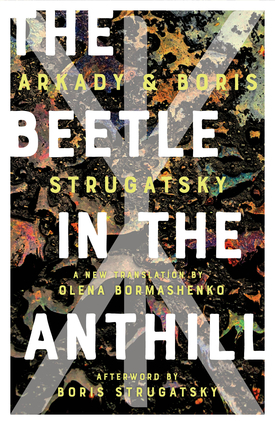
translated by Olena Bormashenko
original publication (in Russian): 1979
first English edition: 1980, Macmillan
this edition: 2023, Chicago Review Press
grab a copy here or through your local independent bookstore or library
“Any self-respecting detective story should, of course, have carefully and explicitly broken these questions down for the reader and provided a complete explanation of each one. But we weren’t in fact writing a detective story. We were writing a tragic tale about the fact that even in a kind, and gentle, and just world, the emergence of a secret police force (of any type, form, or style) will inevitably lead to innocent people suffering and dying, no matter how noble the goals of this secret force, and no matter how honest, decent, and noble the people staffing it may be.” – Boris Strugatsky “Afterword” (226)
The Beetle in the Anthill begins with a mystery: why has Progressor Lev Abalkin suddenly left his work on another planet and come to Earth? Moreover, why has he refused to check in with his bosses at COMCON-2 but is instead running around the planet contacting his old acquaintances and teachers and asking them strange questions about his past?
Beautifully translated by Olena Bormashenko and narrated by former space explorer/progressor and current COMCON-2 investigator Maxim Kammerer, Beetle is a series of nested mysteries about who Lev Abalkin really is, why he is avoiding the people tasked with protecting Earth from outside threats, and what actually happened to the people on the planet that Abalkin and his alien translator visited.
Tasked with tracking down Abalkin, Kammerer contacts his former girlfriend, physician, and teacher, all of whom are bewildered by Abalkin’s questions about who he actually is. Kammerer himself is kept in the dark by his boss about why Abalkin is so important, and thus Kammerer’s investigation stalls. Meanwhile, Kammerer includes bits and pieces of Abalkin’s notes about his time on a mysterious planet where almost the entire population has disappeared after the outbreak of a strange virus. For a while, the reader is led to believe that whatever Abalkin discovered about this planet is the reason for his strange behavior.
But then, that part of the story is never picked up again. Instead, we learn that Abalkin is actually one of thirteen humans born from eggs that were discovered on another planet many years before. With them are objects that are assumed to be some kind of detonators. Assuming that these embryos are somehow connected to the Wanderer civilization, the leaders at COMCON had decided to scatter the children born from the eggs across the world and then make sure that they were all stationed on other planets, just in case the Wanderers programmed them to threaten the Earth. Above all, these children are never to be told what they are.
Kammerer eventually learns from his boss that Abalkin has found out about his origins and is likely questioning people about his past in order to assure himself that he isn’t some sort of Wanderer android. The fact that he is trying to get access to the detonators, though, makes Kammerer’s boss wonder about Abalkin’s plans.
Like Roadside Picnic, The Dead Mountaineer’s Inn, The Inhabited Island, The Waves Extinguish the Wind, and so many other Strugatsky novels, Beetle is a science fiction detective story (despite Boris Strugatsky’s earlier quote). A mystery lies at the heart of each novel, one that isn’t neatly explained at any point in the book. In this way, the Strugatsky brothers are able to argue that their fiction, like life, isn’t straightforward and understandable. Things happen that can’t be explained or that can’t be connected to other events. Humans must try to make sense of their world and experiences based on what reasoning they have. Misunderstandings, secrets, lies, and misguided efforts may throw people off, but reason and instinct will (sometimes) help put them back on course.
Beetle demonstrates, among other things, how Maxim Kammerer develops as an explorer and then as an investigator. His broad view of human efforts to understand the Wanderers gives us a fascinating window onto the world of the Noon universe and the Strugatskys’ oeuvre.
September 15, 2023
Review: Freetaly: Italian Science Fiction, ed. Francesco Verso
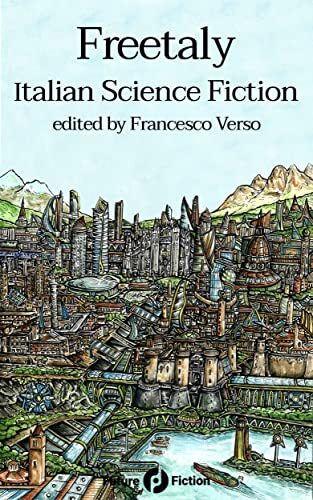
translators: Sally McCorry, Carlotta Codebò, Amanda Blee, Michael Colbert, and Rachel Cordasco
November 29, 2022
grab a copy here or through your local independent bookstore or library
(see below for synopses of individual stories)
Freetaly offers readers a wide array of speculative fiction from Italy, covering topics like human-AI relationships, cloning, and migration. What makes it even more unique is that it’s the first anthology of Italian speculative fiction to be translated into English. Thanks to editor Francesco Verso and translators Sally McCorry, Carlotta Codebò, Amanda Blee, Michael Colbert, and Rachel Cordasco, these stories by award-winning Italian sf authors can now be read and appreciated by Anglophone audiences.
Artificial intelligence plays a key role in stories by Grasso, Conforti, and Teodorani, with connections forged between robots and humans, and even robots and cows. These authors complicate any narrative that imagines a sudden replacement of humans by machines or a full-scale conflict between them. Adjacent to this theme is that of the algorithmic manipulation of human behavior. Both De Santi and Piccolino imagine scenarios in which humans are beholden to algorithmic analysis, but while one focuses on the beauty industry, the other takes up love and the discovery of one’s soul mate.
Only two stories in this anthology deal explicitly with space and what might be found there. Carducci, Fambrini, and Vietti’s contemplation of the mysteries of the Moon and the universe demonstrate just a few of the many ways in which we might think about our place in the solar system and beyond.
Stories about cloning and migration comprise almost half of the texts in this anthology–not surprising, given that Europe broadly has been in the news for the past couple of decades because of cloning experiments and the migration crisis. From “green” ships (Verso) to nearly-extinct bee colonies (Braggion) to special solar cream (Farris), these ideas about how humans attempt to adapt to and manipulate their environment reveal the richness of speculative storytelling in Italy in the early 21st century.
Spread the word about this fantastic anthology; readers in general, and lovers of speculative fiction in particular, will thank you.
“Beautymark” by Linda Di Santi, tr. Sally McCorry
The narrator of this story tells us about a world in which people’s lives are tied to their beauty rating. In order to have access to the best food, shelter, and jobs, people need to take elixirs and have surgery so as to look as beautiful as possible. When the narrator realizes that her rating isn’t high enough to get her a diploma and put her in the running to be a member of the cultural elite, she and her best friend Angela turn to an illegal elixir dealer (for its cheap price). The unexpected result reveals a betrayal so deep that the narrator has to rethink her entire past and prepare for an uncertain future.
“The Race of Crows” by Francesco Grasso, tr. Carlotta Codebò
A “plantation custodian” AI has captured a human trying to steal from or sabotage the upcoming harvest. During an interrogation, the human (Saverio) explains to the AI that a German agriculture company had taken over Italy years before in exchange for cancelling the latter’s debt. Entire towns were destroyed when their citizens refused to move and give up their farmland to AI-controlled farming. When the strategic subsystem that monitors the Custodian tries to shut it down for refusing to kill Saverio; the Custodian, Saverio, and the other humans in hiding in the area turn off the strategic subsystem. In return for the Custodian’s help, the humans teach it ancient and effective farming techniques.
“Bad Parents” by Andrea Viscusi, tr. Amanda Blee
At a boarding school in an unnamed town in Italy, a headmaster and his teachers are training around a dozen boys to be the future leaders of their country. When one boy realizes that he has a strange, inexplicable connection to a famous painting from two centuries before, the headmaster decides to reveal to the students who they really are and what their true purpose is.
“The Catalog of Virgins” by Nicoletta Vallorani, tr. Rachel Cordasco (prev. in Clarkesworld)
Told from the point of view of a man trying to uncover the truth and the cloned women who have been brutalized and then killed, this story is a haunting, modern version of the Bluebeard tale.
“In Bloom” by Clelia Farris, tr. Carlotta Codebò
More and more people are moving North as the heat increases on this unnamed Italian island, but one woman has been experimenting with a new plant-based sun cream that might make life more bearable for those who use it. A story about living with and for the land, “In Bloom” takes into account the delicate and important connection between humanity and plantlife.
“The Green Ship” by Francesco Verso, tr. Michael Colbert
African refugees attempting to break a blockade around Europe are instead picked up by a “Green Ship,” or floating micronation. After a seaquake brings a small island to the ocean’s surface, the refugees on the ship are able to settle and start new lives.
“The Love Algorithm” by Michele Piccolino, tr. Carlotta Codebò
A Man looking to find his soulmate the old-fashioned way is forced by his sister to undergo a brain scan to find out what the LoveMat has to say about it. When he learns that the women he was meant to be with committed suicide just a few days before, he makes a drastic decision.
“Flower Queen” by Romina Braggion, tr. Carlotta Codebò
A woman who cares for some of the last bees on Earth brings them to a matriarchal community so they can be cared for.
“The Moby Clitoris of His Beloved” by Roberto Quaglia and Ian Watson (prev. in Clarkesworld)
This absurd story is about one man’s quest to taste the delicacy that is whale clitoris sashimi. He eventually starts a business selling the fake version, but as his obsession and the business grow out of control, the woman he hired to help market the product becomes herself part of the marketing, and eventually a cultural icon.
“China on the Moon” by Stefano Carducci and Alessandro Fambrini, tr. Carlotta Codebò
When Chinese taikonauts discover a million-year-old structure on the far side of the moon, they inform the Vatican that one of the sarcophagi within contains what looks like Jesus Christ. The other containers hold alien creatures and also various figures from the Earth’s religions. Eventually, the humans nuke the structure, but Jesus and Satan disappear from it and reappear on Earth in disguise.
“Being Oval” by Alessandro Vietti, tr. Carlotta Codebò
This story is narrated by a man who was born without limbs and has been sent out into space, with a thousand other disabled people, to act as a human probe.
“Reward” by Franci Conforti, tr. Carlotta Codebò
In the near future, a company tries to deal with an angry ex-employee who is one of many pushed aside by automation. To stop his loud protests, one employee has a robot befriend him.
“Pony and Cow” by Alda Teodorani, tr. Sally McCorry
An AI pony befriends a cow and helps her find her calf many years after humans left a ruined Earth on spaceships.
September 9, 2023
Out This Month: September
SHORT STORIES
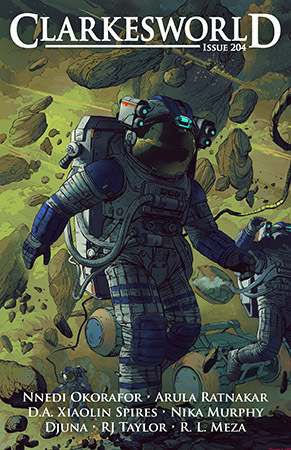
“The People from the Dead Whale” by Djuna, translated from the Korean by Jihyun Park and Gord Sellar (Clarkesworld, September 1).
NOVELS

The Court of Shadows by Victor Dixen, translated from the French by Françoise Bui (Amazon Crossing, September 19).
A fiery heroine seeks vengeance against a royal court of deadly vampires in this epic alternate history set in lavish Versailles.
September 5, 2023
Review: The Waves Extinguish the Wind by Arkady & Boris Strugatsky
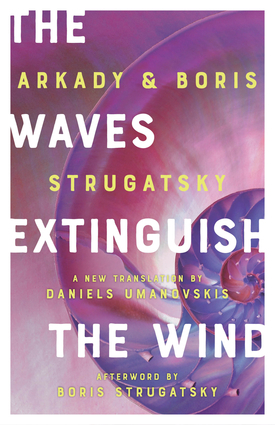
translated by Daniels Umanovskis
original publication (in Russian): 1986
first English edition (as The Time Wanderers): 1987, Richardson & Steirman
this edition: 2023, Chicago Review Press
grab a copy here or through your local independent bookstore or library
When you pick up a book by two of the greatest science fiction writers of the 20th century, you know you’re going to love it. And the Strugatsky brothers’ The Waves Extinguish the Wind, in a beautiful translation by Daniels Umanovskis, doesn’t disappoint.
The last novel in the Noon Universe, Waves brings to an end the story of a 22nd-century Earth that has become a communist utopia and sends “progressors” out to alien planets in order to guide their civilizational development. Not surprisingly, this human effort to “help” other races makes those in charge of progressor missions start to wonder if maybe alien progressors (called “Wanderers”) are trying to do the same thing on Earth.
Waves tells the story of Toivo Glumov, an ex-progressor and current employee of COMCON-2, through a series of documents and from the point-of-view of Glumov’s boss, Maxim Kammerer (a character featured in many of the Noon Universe books). In his late eighties now, Kammerer began his career as an explorer and progressor, but returned to Earth to work for COMCON-2, a security and intelligence service that investigates, among other things, traces of Wanderer activity on Earth. Now, Kammerer is overseeing Glumov’s work, which has revealed a multitude of seemingly-inexplicable events that point to the Wanderers.
The collection of documents that Kammerer offers us details Glumov’s investigations into “Penguin syndrome,” “fukamization,” and the incident at Malaya Pesha. “Penguin syndrome,” so named for the kind of space ship on which some of the victims traveled, manifests itself in a dream in which an individual
finds himself floating in empty space, helpless and powerless, lonely and forgotten by everyone, at the mercy of soulless, insurmountable powers. Physically he feels torturous suffocation, feels his body burned by piercing, destructive radiation, his bones thin and melt, the brain start to evaporate, he feels unimaginable, indescribable desperation, and then he wakes up. (24)
This kind of dream results in what Kammerer calls “cosmophobia.” One theory about it is that the Wanderers are trying to discourage humans from venturing any further into space.
“Fukamization” involves babies getting injections that will help them adapt better to their environment. It improves immune resistance and helps the body deal with the hazards of space. Though it had been mandatory for years, a sudden movement against it convinced world leaders to make it voluntary, meaning that now fewer humans are able to have this kind of physiological strength. Kammerer, Glumov, and others wonder what suddenly made mothers around the world refuse to give their babies these injections.
Finally, there’s Malaya Pesha, the place where a sudden influx of strange alien creatures–gooey, small, disgusting but also weirdly beautiful–spread throughout the town, terrifying its residents and sending them to the null-transporter to escape. Only two residents–an old woman and a teenage boy–don’t feel revulsion for the creatures. In fact, the woman feels sorry for them. Glumov theorizes that this was a test, on the part of the Wanderers, of xenophilia among the human population.
Eventually, Glumov’s findings lead to what Kammerer calls “The Great Revelation,” which reveals to humanity what it has become through the long process of evolution. It throws into question everything Glumov has believed but opens a new door for him…which I won’t tell you about because you need to read the book!
As does every Strugatsky book, Waves will make your brain work and consider things you’ve never thought about before. It’s science fiction at its best.
For more reviews of Strugatsky novels, see: The Inhabited Island, The Doomed City, The Snail on the Slope, The Dead Mountaineer’s Inn, Roadside Picnic



